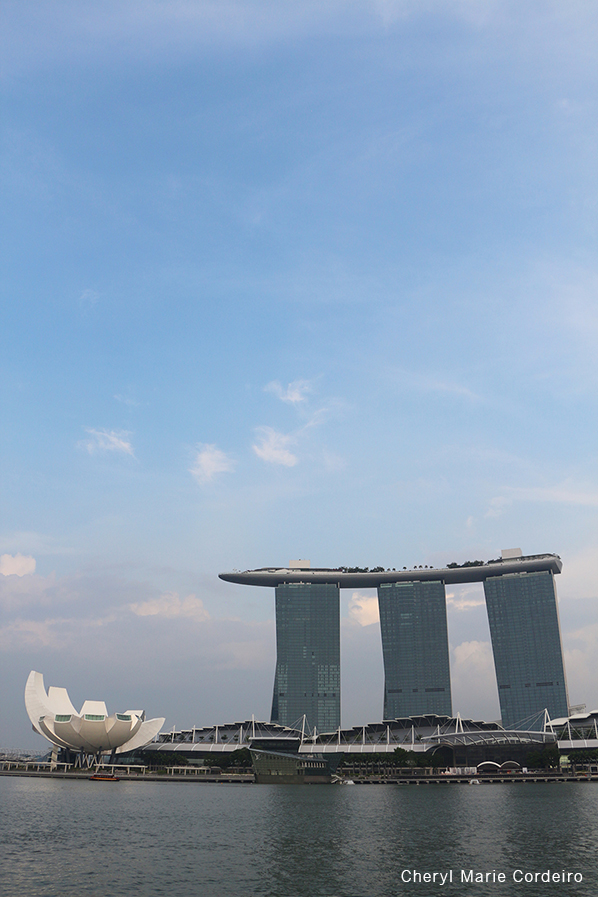ArtScience Museum, Marina Bay Sands, Singapore.
Text & Photo © JE Nilsson, CM Cordeiro 2014
Taxi drivers. They make some of the most understated ambassadors to a country, in particular, if that country is Singapore, if only because most taxi drivers are quite loquacious individuals who love spending time in transit to get to know their passengers.
Having not been back in Singapore for a couple of months, I had expected some kind of feedback when I landed in Singapore from Sweden, from family or friends about the climate, not just literally about the haze from Indonesian forest fires, but rather the political and cultural climate of the country. It seemed I had that opportunity however, on the incoming flight from Scandinavia on the airplane, sitting next to Ben, a 1980s born young man who had five years ago, married a woman from Malaysia. She was in fact, seated in an adjacent row with her sister. In the course of conversational exchange, Ben mentioned that he and his wife had no children as yet, “Even though we are five years married already.”
